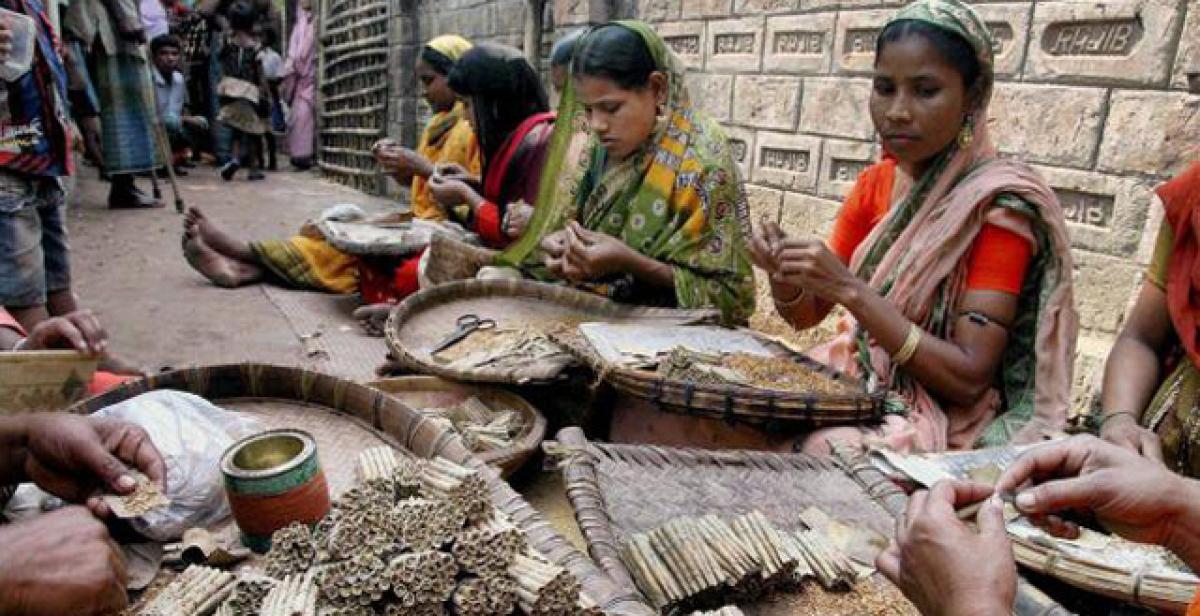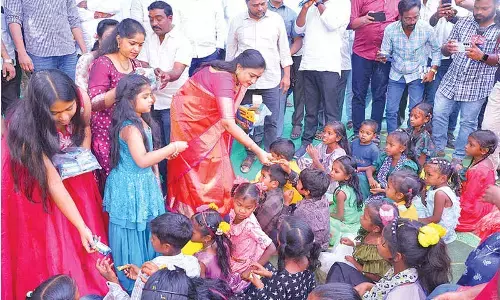GST, bidis and tobacco laws

India is the second largest consumer of tobacco. Bidi is the most commonly used tobacco product in India, accounting for 64 per cent of tobacco consumption.
India is the second largest consumer of tobacco. Bidi is the most commonly used tobacco product in India, accounting for 64 per cent of tobacco consumption. It is consumed mainly by the poor. Bidis contribute to the majority of the 10 lakh deaths attributable to tobacco. As a country which is a signatory to the WHO’s Framework Convention on Tobacco Control, India is bound to implement the R in MPOWER policy – which says raising taxes is the best way to reduce tobacco use.
Though the WHO recommends that a higher tax over tobacco products is the best way to reduce tobacco use and thereby contribute to tobacco prevention, the tax burden over the Indian tobacco industry is not enough. With the introduction of GST, the government has decided to levy additional cess over tobacco products like cigarettes and other forms of tobacco like pan masala while decision on bidis is not yet taken.
There has been a hue and cry from politicians including those in the government both at the Centre and State level, particularly from Telangana, opposing the GST cap of 28 per cent on bidis, arguing that it would affect the livelihood of thousands of bidi workers. Leaving apart their digression from the principle of collective responsibility while opposing their own government view on GST over bidis, it indicates their utter lack of concern for health of bidi workers and societal health.
In this context, it is worthwhile discussing what the NTCP (National Tobacco Control Programme) guidelines laid down the Ministry of Health and Family Welfare, Government of India, say. As per the NTCP guidelines, at the district level, the district labour officer and at the state level the Commissioner, Labour Department, have to ensure that all tobacco products manufactured in registered factories print the pictorial health warnings, Conduct of programmes for sensitisation of bidi rollers about the health hazards of bidi rolling and conduct vocation training to bidi rollers for alternative livelihood.
Also the guidelines advocate that at the State level, the Principal Secretary, Rural Development, and the BDO (Block Development Officer) at the Block level have to ensure alternative livelihoods for bidi workers under the NRLM and SGSY schemes. Even regarding the strict implementation of pictorial warnings on bidis, politicians, ministers and tobacco growers raised objections without concern for public health.
The NTCP guidelines point that at the district level Agriculture Extension officers and the Principal Secretary (Agriculture) at the State level have to provide alternative cropping options for tobacco growers, and conduct programmes for awareness generation among the farmers about the harmful effects of tobacco growing as well as use.
Replies received by me for my letters under the Right to Information Act reveal that we are far from reality and that there is utter lack of awareness among the officials concerned about these NTCP guidelines and lack of implementation of the NTCP guidelines as far as bidi workers are concerned.
Instead of making attempts to stop taxation on tobacco products particularly bidis, politicians and administration should concentrate on ensuring that bidi workers are sensitised properly and provide them with alternative livelihoods under NRLM and SGSY schemes.
Even NGOs should educate bidi workers about their right to earn livelihood under the government schemes so that their health and societal health is protected. Only then can we ensure attainment of the WHO goal of “25 by 25” – Reducing premature mortality from NCDs by 25% by 2025 – for which tobacco prevention is an important target.
By Dr R Srinivas

















